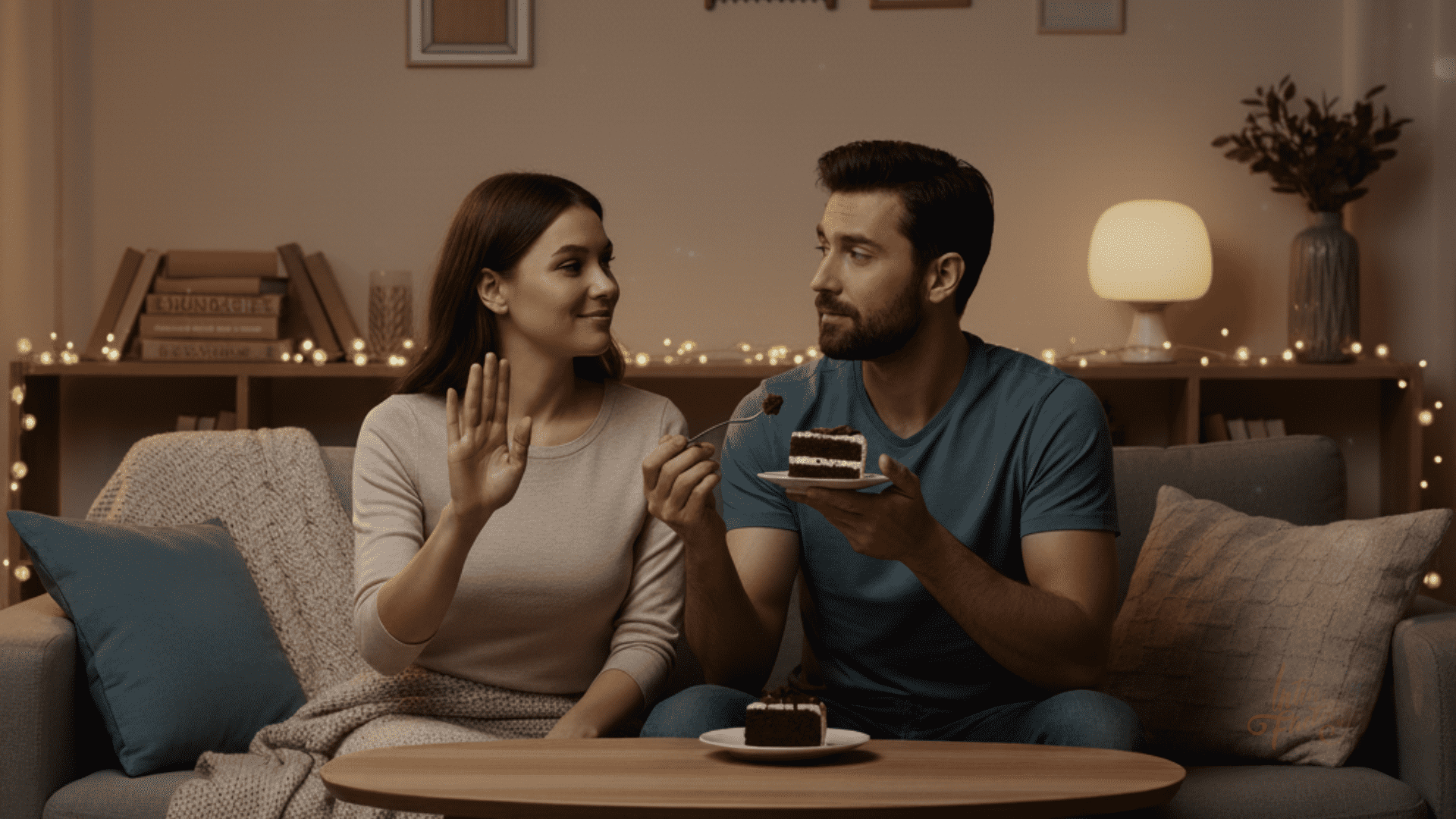How to Say “No” Without Feeling Like a Villain

The word “no” is tiny. Just two letters. Easy to spell. Easy to pronounce. Yet somehow, when you try to use it in a relationship, it feels like the most dangerous word in the world. You open your mouth, say it out loud, and immediately feel like you just kicked a puppy in front of your partner.
That is the power of “no.” It makes you feel guilty even when you are doing nothing wrong. You are not rejecting love, you are not rejecting commitment, you are simply protecting your peace. But in the moment, your brain convinces you that you have just ruined date night, destroyed intimacy, and maybe even canceled the whole relationship.
The truth is, saying no does not make you a villain. It makes you a healthy human being. And if more people learned how to say no without guilt, we would have fewer resentful couples and way more happy ones.
Why “No” Feels So Wrong
From a young age, most of us were trained to be agreeable. We were told to be polite, share our toys, and not upset people. Somewhere along the way, being kind became confused with never disagreeing. This is why, when you tell your partner “no,” it feels like a crime.
When you say no to hanging out with their friends, they might act like you just declared war on friendship itself. When you say no to sharing your fries, it feels like a betrayal of the relationship contract. And when you say no to staying up late, suddenly you are accused of killing the romance.
But boundaries are not betrayal. They are honest. And honesty is what keeps relationships alive. If one small no causes a meltdown, the problem is not your no. The problem is that someone expects unconditional yeses.
The People Pleaser Trap
There is a dangerous lie many of us believe. We think that always saying yes makes us loving partners. The reality is very different. Always saying yes does not make you more romantic. It makes you an unpaid intern in your own relationship.
You know what this looks like. You agree to attend a party even though you would rather stay home in pajamas. You volunteer to help with a task you do not care about when you were hoping to binge-watch your favorite show. You nod along to music you secretly dislike, pretending it is your favorite playlist too.
At first, it feels harmless. You think you are being generous. But slowly, you build up resentment. You start to feel like you have lost yourself. And worst of all, your partner may have no idea because you never told them how you actually felt.
The First “No”
If you are a lifelong people pleaser, the first time you say no in a relationship feels like launching a rebellion. Picture this. Your partner offers you a bite of dessert. Usually, you smile and pretend you want it even though you are full. But this time, you bravely say, “No thanks.”
For a second, the room feels tense. Your mind races. You imagine thunder in the distance. You prepare yourself for the dramatic speech about how love is over.
And then nothing happens. They shrug. They eat dessert. Life moves on. Your relationship does not implode. In fact, you may even notice a flicker of respect in their eyes. It turns out that confidence is more attractive than forced agreeableness.
Boundaries Are Not Breakups
Many people confuse boundaries with rejection. They think saying no is the same as saying, “I don’t love you.” That is not true at all. Saying no means you love yourself enough to avoid burnout.
Think of boundaries like bathroom doors. You do not lock the door because you hate your family. You lock it because you value privacy and peace. Boundaries in relationships work the same way. They are not walls meant to shut someone out. They are doors meant to keep life balanced.
In fact, couples who respect each other’s boundaries usually last longer. No one feels smothered. No one feels taken for granted. And no one feels like they are dating a free therapist who is on call twenty-four seven.
How to Say No Without Feeling Awful
Knowing you should say no is one thing. Actually saying it is another. Many people avoid it because they do not want to sound rude. But here is the trick. You can say no in a way that is still kind, clear, and loving.
You do not need to write a five-page apology every time you decline something. You can keep it simple. Try saying, “I’d love to, but I really need some rest tonight.” Or, “That is not something I can do right now, but here is what I can offer.” Or even, “No thanks, I already made plans with my couch and we are very committed to each other.”
These phrases are polite, honest, and easy. You are not rejecting your partner as a person. You are simply being clear about what you need.
Saying Yes to Yourself
Here is the most important part. Every time you say no to something you do not want, you are saying yes to yourself. You are saying yes to rest, yes to mental peace, and yes to saving your energy for what really matters.
Think about what happens when you always say yes. At first, it seems fine. But slowly, you start to run on empty. You become tired, irritable, and resentful. Suddenly, you are annoyed by the sound of chewing. You are irritated by socks on the floor. You explode over small things not because they are big, but because you are stretched too thin.
By saying no, you avoid this downward spiral. You stay balanced, rested, and more present. And guess what? A well-rested version of you is a much better partner than the exhausted people pleaser version.
When No Gets Taken the Wrong Way
Of course, not everyone reacts well to boundaries. Some people sulk. Some pout. Some act like your no is a personal insult. And that can feel terrible.
But here is the truth. Their reaction is not your responsibility. Boundaries test relationships. The right person will respect them, adjust, and even appreciate your honesty. The wrong person will guilt trip you, punish you, or try to wear you down.
That is your clue. If your no is never respected, then the real issue is not that you set a boundary. The issue is that you are with someone who only values your yes.
Checkout Complete
So let us wrap this up. Saying no does not make you cruel or selfish. It makes you healthy. It makes you honest. And it keeps your love life from turning into a full-time job with no salary.
Boundaries are not walls. They are guidelines that teach your partner how to love you better. They protect your energy so you can show up as your best self instead of a burned-out version.
If your partner cannot handle a no, then you are not in a romance. You are in customer service. And you are not running a twenty-four hour hotline.
The next time you feel guilty for saying no, remember this. You are not rejecting love. You are protecting it. And if your relationship is real, your partner will understand that your no is not a rejection but an act of honesty that makes the yes moments even more meaningful.
Also Read:
Boundary Burnout in Relationships: When YES Becomes Too Much
Just so you know: Some links on this blog are affiliate links. If you choose to make a purchase through them, I might earn a small commission, and it won't cost you anything extra. Your support makes a big difference and helps me continue to bring you valuable content.

I write about the unexpected, beautiful, and sometimes painful sides of love, dating, romance, breakups, intimacy, marriage, and everything in between. My goal? To help you spot the toxic, protect your peace, and never forget your worth.




